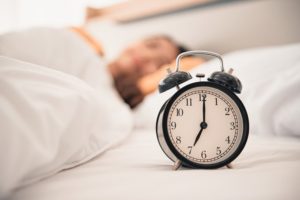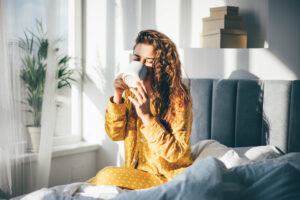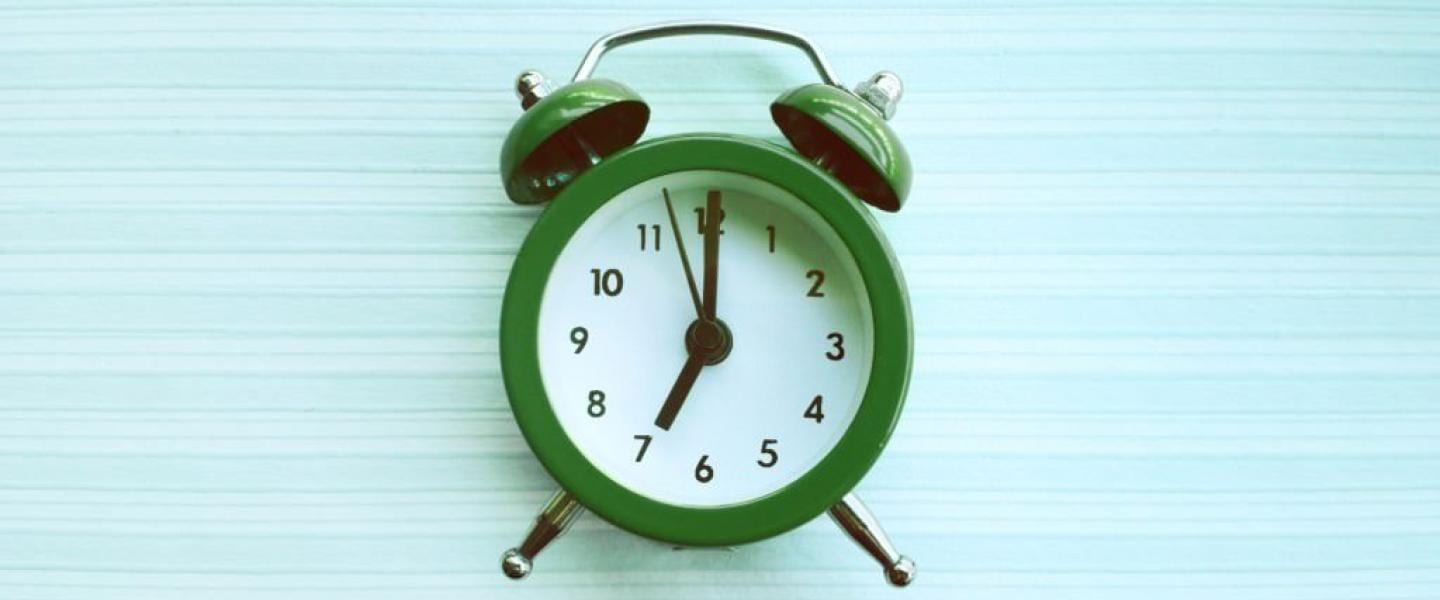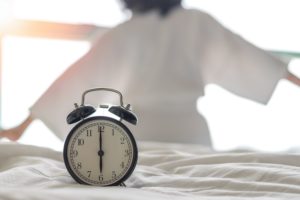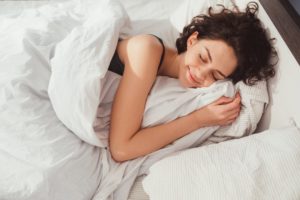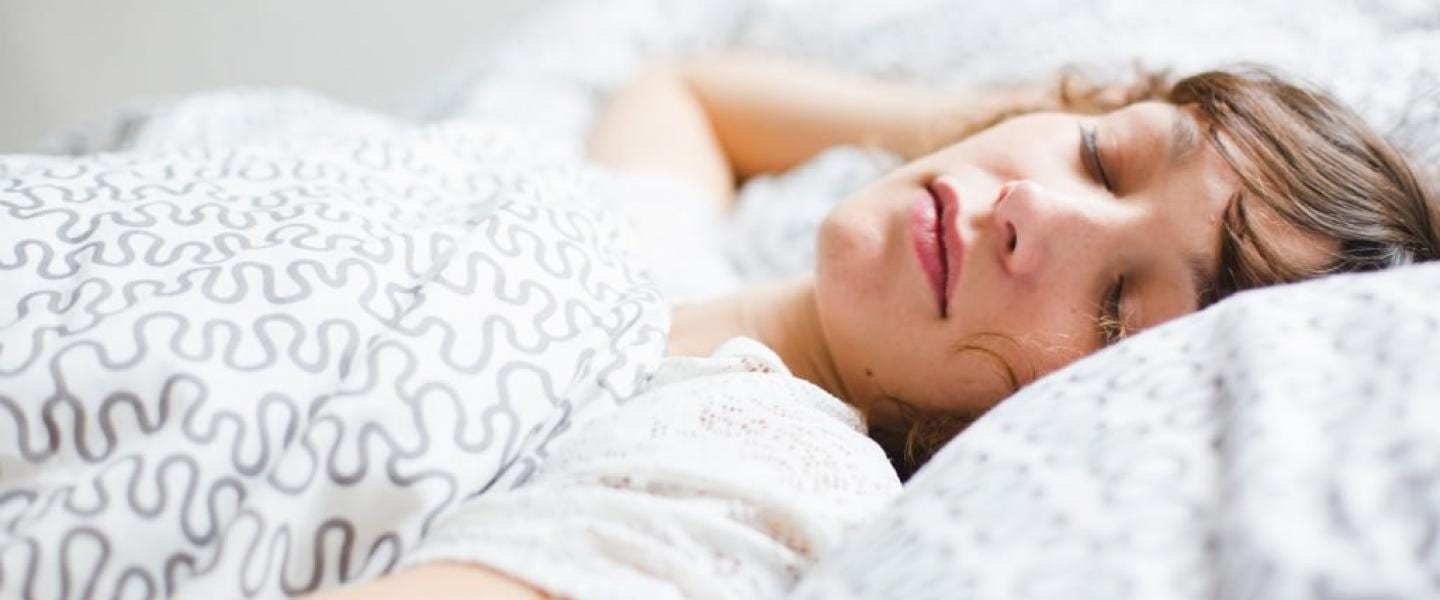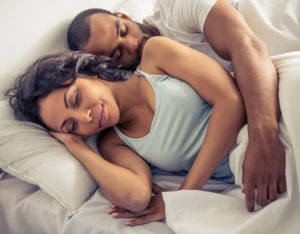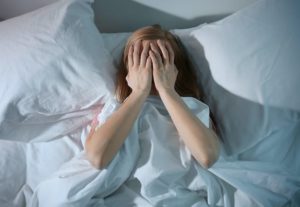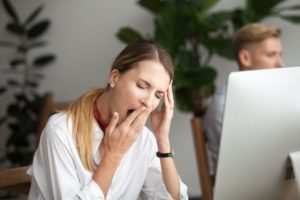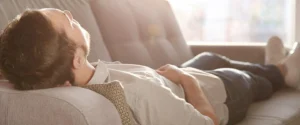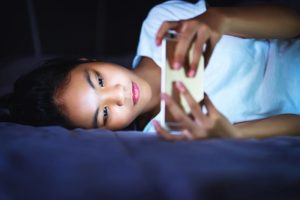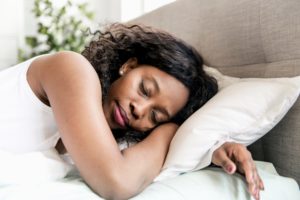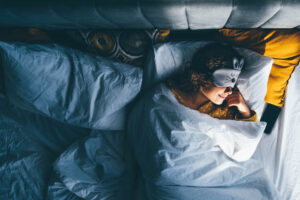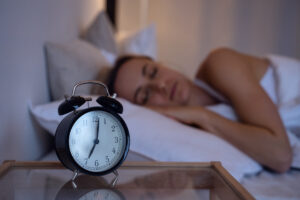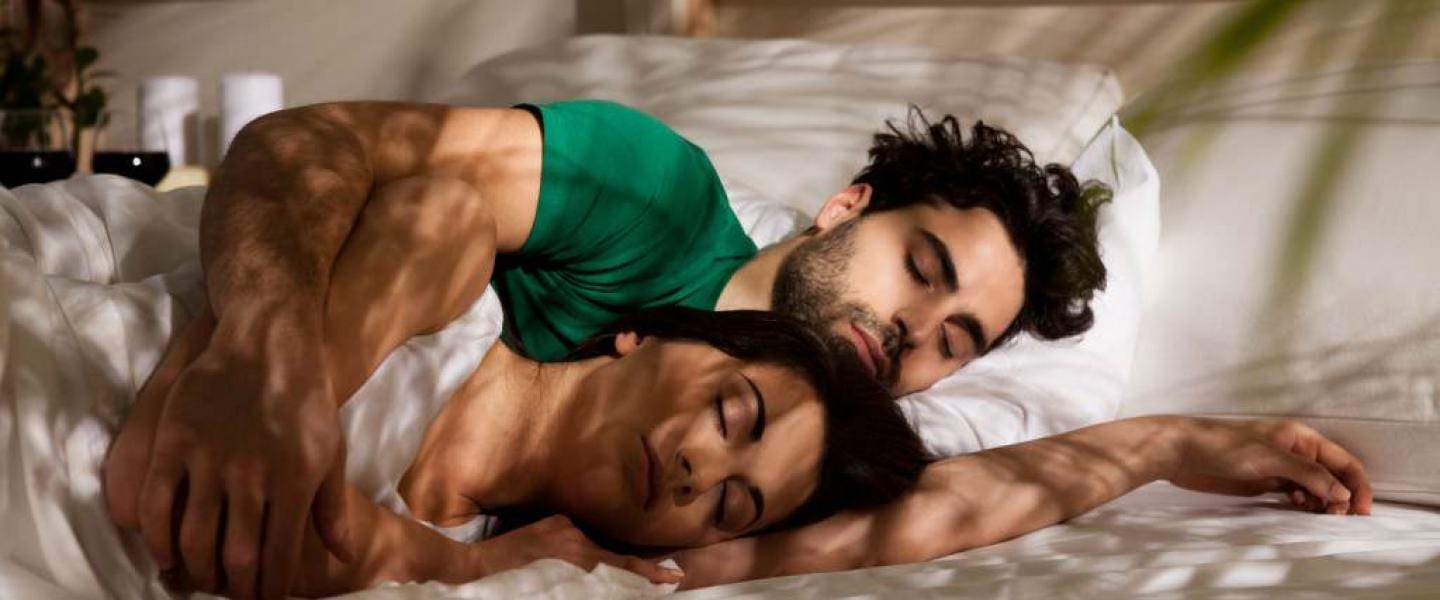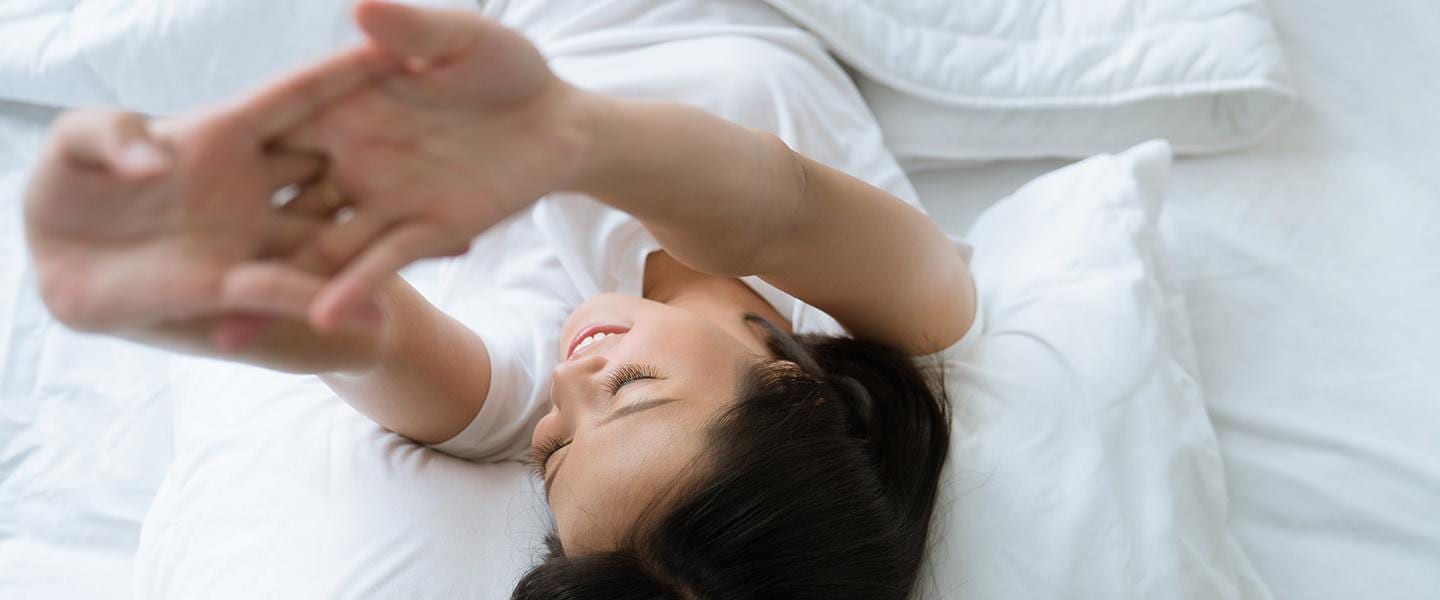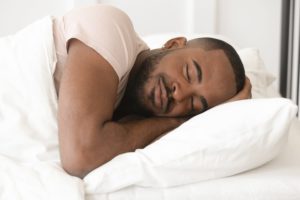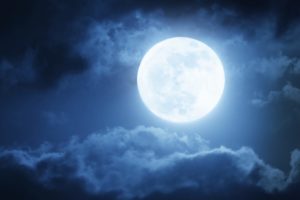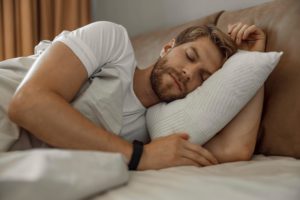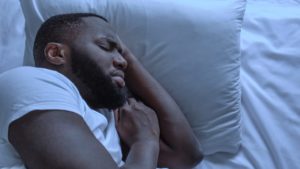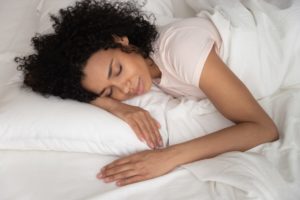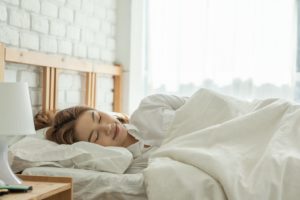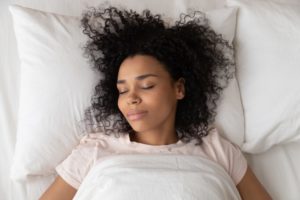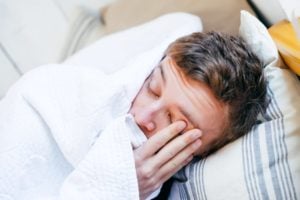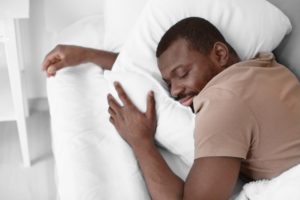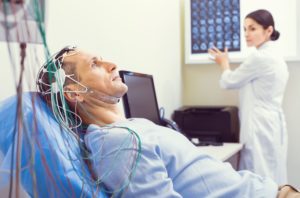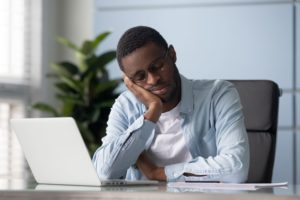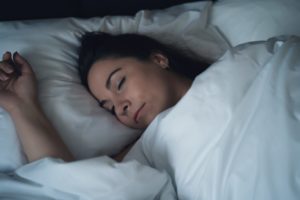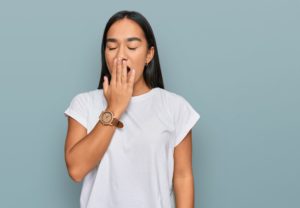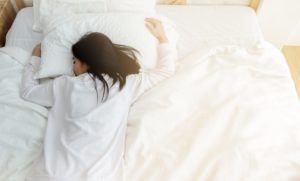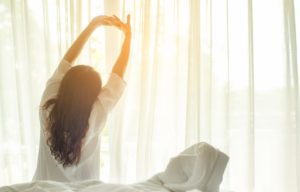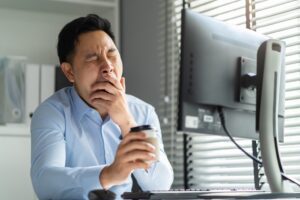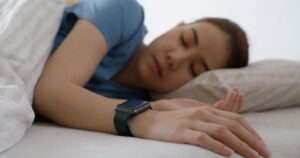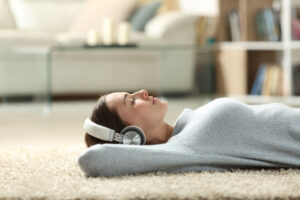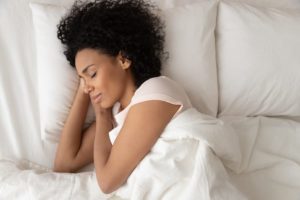Light Sleeper: What It Means and What To Do About It
If you often wake up at night, whether from the headlights of a passing car or the noise of a family member in the hallway, you might be a light sleeper.
Light sleepers might be frustrated by having sleep interrupted by factors outside of their control. Plus, getting high-quality, uninterrupted sleep is important to overall well-being. Sleep affects nearly all aspects of health, from your mood and metabolism to your brain and your bones.
If you are a light sleeper, it is beneficial to understand what is waking you up and figure out what you can do to sleep more soundly through the night.
What Is a Light Sleeper?
People who are light sleepers may wake up in response to small disturbances in their sleep environment. The disturbance could be the outside noise, their partner shifting positions in bed, or a light turning on in the hallway.
Sounds, smells, light, and movement can all wake a light sleeper. Heavy sleepers, on the other hand, seem to have no problem sleeping through noise and other disturbances.
Being a light sleeper makes it tough to get a good night’s sleep. Poor quality sleep not only makes you feel irritable in the morning, but is also linked to long-term health problems like type 2 diabetes, hypertension, cardiovascular disease, obesity, and certain cancers. On a short-term basis, sleep disruptions increase your stress levels, sensitivity to pain, and ability to remember and focus.
Looking to improve your sleep? Try upgrading your mattress.
What Is the Difference Between Light and Deep Sleep Stages?
Being a light sleeper is different from being in a stage of light sleep. Over the course of a typical night’s sleep, you cycle through four stages of sleep several times, every 90 minutes or so. The stages of sleep are divided into rapid eye movement (REM) and non-rapid eye movement (NREM) sleep.
- Stage One: This is the lightest and shortest stage of NREM sleep, lasting just a few minutes. When you first fall asleep, everything slows down, including your brain waves, heartbeat, breathing, and eye movements. Your muscles start to relax, with the occasional twitch here and there. This stage of sleep is the easiest time to wake a person up.
- Stage Two: This stage is even slower than stage one, but it lasts longer. Your brain waves, heartbeat, and breathing keep slowing down, while eye movements stop completely. Your core body temperature cools, and your muscles relax even further.
- Stage Three: The third stage is deep sleep. In this stage of sleep, everything slows to its lowest levels as your body physically repairs itself. It is harder to wake up a person during deep sleep.
- Stage Four: Stage four is REM sleep. In this stage of sleep, your brain waves look similar to when you are awake. Your eyes move quickly, your breathing and heart rate quicken, and your blood pressure rises. You dream during REM sleep, while your muscles stay paralyzed, in order to prevent you from acting out your dreams.
REM vs. Non-REM Sleep
Sleep works in a cyclical fashion. During a night of at least seven hours of uninterrupted sleep, your brain cycles through all four stages several times. With each cycle, you spend progressively more time in REM sleep. The deeper stages of sleep are critical for physical repair, emotional processing, and memory consolidation.
When light sleepers wake up, it interrupts this cycle. As a result, they may miss out on getting sufficient amounts of the more restorative stages of sleep like REM. They are more likely to wake up feeling sleep-deprived. In the long term, these sleep disruptions can increase the risk for certain health conditions. For example, some researchers have calculated that for each percentage decrease of REM, your risk of dementia increases by 9%.
What Causes Some People to Be Light Sleepers and Not Others?
Researchers still do not know what makes someone a light sleeper or heavy sleeper. Genetics, an underlying sleep disorder, or aspects of the bedroom environment can all contribute.
People who are light sleepers can wake up to small disturbances like a car passing by or a street lamp turning on. Heavy sleepers, on the other hand, need something much more stimulating to wake up, like a blaring alarm clock. The differences in sensitivity to these stimuli are due to what doctors call an arousal threshold. An arousal threshold describes how strong a stimulus must be to wake you up. Light sleepers have lower arousal thresholds than heavy sleepers do.
Your arousal threshold can be affected by a number of factors, such as:
- The Stage of Sleep: It is easier to wake a person up during light sleep than deep sleep, for instance.
- How Long You Were Awake: People who have been up for longer periods of time sleep more deeply than those who have not.
- Stress: If you are suffering from stress, anxiety, or hypervigilance, you may wake more easily. People who are dealing with high levels of stress tend to have more disturbed sleep. Similarly, people with post-traumatic stress disorder (PTSD) tend to experience sleep disturbances.
- Your Age: After age 60, we tend to become lighter sleepers. Older adults are more prone to wake up during the night and sleep less overall.
Sleep Spindles and Light Sleep
Sleep spindles are a spontaneous brain rhythm that, in addition to assisting with the memory consolidation process, may make the brain more resilient to sleep disruptions like noise. People can produce more or fewer sleep spindles, but the amount they produce tends to be consistent across nights.
One study found that people who produce more sleep spindles have an easier time sleeping through noise. This may help explain why we become lighter sleepers in old age, since we produce fewer spindles as we get older.
How to Sleep Better When You’re a Light Sleeper
There are several things light sleepers can do to ensure a better night’s sleep.
Follow Good Sleep Hygiene
Good sleep hygiene describes a set of habits that promote healthy sleep. Incorporating these habits into your daily routine can help improve the quality of sleep you get each night.
- Set and follow a regular sleep schedule every day, including weekends.
- Limit naps during the day. Naps longer than 30 minutes can reduce your sleep drive and make it harder to fall asleep later that night.
- Follow a calming bedtime routine. Performing the same activities, in the same order, every night can help train your brain to recognize it’s time to sleep.
- Avoid electronics and blue light for 30 to 60 minutes before bed.
- Adopt a healthy diet, and exercise early in the day.
- Limit your caffeine and alcohol intake.
- Get sunlight exposure early in the day to reinforce your natural circadian rhythms.
- Keep your bedroom dark, cool, and quiet, and limit its use to sex and sleep.
Reduce Your Stress
If stress is keeping you up, relaxation methods can help relieve your stress during the day. Meditation and yoga can both reduce stress and anxiety. You can also incorporate relaxation techniques into your bedtime routine, such as progressive muscle relaxation, deep breathing exercises, or aromatherapy.
If your anxiety is interfering with your quality of life, it may be beneficial to consult a mental health professional.
Block Noise and Light at Night
If noises wake you up at night, try falling asleep to a white noise playlist or keep a fan on. The steady hum can help mask other noises so you can fall asleep faster. It also makes you less likely to wake up during the night.
If light wakes you up, do what you can to keep your bedroom dark. Blackout curtains can help minimize outside light. To block indoor lights, it may be beneficial to wear an eye mask to bed.
Ask Your Doctor About Medication
Being a light sleeper is not the same thing as having insomnia, but certain medications for insomnia can also help light sleepers sleep better. Melatonin supplements can be purchased over-the-counter and used as a short-term sleep aid.
In some cases, a doctor may recommend prescription medication to help you stay asleep. Certain medications can have serious side effects and should only be used as prescribed.
When to Talk to Your Doctor
Being a light sleeper can be frustrating, but there are steps you can take to sleep more deeply. If you still feel tired after taking steps to improve your sleep hygiene and bedroom environment, consult your doctor. They can provide additional recommendations based on your personal medical history, or refer you to a specialist to determine if an underlying condition is contributing to your sleep troubles.
Medical Disclaimer: The content on this page should not be taken as medical advice or used as a recommendation for any specific treatment or medication. Always consult your doctor before taking a new medication or changing your current treatment.

Still have questions? Ask our community!
Join our Sleep Care Community — a trusted hub of product specialists, sleep health professionals, and people just like you. Whether you’re searching for the perfect mattress or need expert sleep advice, we’ve got you covered. Get personalized guidance from the experts who know sleep best.
References
13 Sources
-
National Institute of Neurological Disorders and Stroke. (2022, September 26). Brain basics: Understanding sleep.
https://www.ninds.nih.gov/health-information/public-education/brain-basics/brain-basics-understanding-sleep -
Kowall, B., Lehnich, A. T., Strucksberg, K. H., Führer, D., Erbel, R., Jankovic, N., Moebus, S., Jöckel, K. H., & Stang, A. (2016). Associations among sleep disturbances, nocturnal sleep duration, daytime napping, and incident prediabetes and type 2 diabetes: The Heinz Nixdorf Recall Study. Sleep Medicine, 21, 35–41.
https://pubmed.ncbi.nlm.nih.gov/27448469/ -
Medic, G., Wille, M., & Hemels, M. E. (2017). Short- and long-term health consequences of sleep disruption. Nature and Science of Sleep, 9, 151–161.
https://pubmed.ncbi.nlm.nih.gov/28579842/ -
Cologne, Germany: Institute for Quality and Efficiency in Health Care (IQWiG). (2016, December 30). What is “normal” sleep? InformedHealth.org [Internet].
https://www.ncbi.nlm.nih.gov/books/NBK279322/ -
Pase, M. P., Himali, J. J., Grima, N. A., Beiser, A. S., Satizabal, C. L., Aparicio, H. J., Thomas, R. J., Gottlieb, D. J., Auerbach, S. H., & Seshadri, S. (2017). Sleep architecture and the risk of incident dementia in the community. Neurology, 89(12), 1244–1250.
https://pubmed.ncbi.nlm.nih.gov/28835407/ -
Andrillon, T., & Kouider, S. (2020). The vigilant sleeper: Neural mechanisms of sensory (de)coupling during sleep. Current Opinion in Physiology, 15, 47–59.
https://www.sciencedirect.com/science/article/pii/S2468867319301889 -
Staner, L. (2003). Sleep and anxiety disorders. Dialogues in Clinical Neuroscience, 5(3), 249–258.
https://pubmed.ncbi.nlm.nih.gov/22033804/ -
Kalmbach, D. A., Cuamatzi-Castelan, A. S., Tonnu, C. V., Tran, K. M., Anderson, J. R., Roth, T., & Drake, C. L. (2018). Hyperarousal and sleep reactivity in insomnia: Current insights. Nature and Science of Sleep, 10, 193–201.
https://pubmed.ncbi.nlm.nih.gov/30046255/ -
Dang-Vu, T. T., McKinney, S. M., Buxton, O. M., Solet, J. M., & Ellenbogen, J. M. (2010). Spontaneous brain rhythms predict sleep stability in the face of noise. Current Biology, 20(15), R626–R627.
https://pubmed.ncbi.nlm.nih.gov/20692606/ -
Irish, L. A., Kline, C. E., Gunn, H. E., Buysse, D. J., & Hall, M. H. (2015). The role of sleep hygiene in promoting public health: A review of empirical evidence. Sleep Medicine Reviews, 22, 23–36.
https://pubmed.ncbi.nlm.nih.gov/25454674/ -
Lemay, V., Hoolahan, J., & Buchanan, A. (2019). Impact of a yoga and mediation intervention on students’ stress and anxiety levels. American Journal of Pharmaceutical Education, 83(5), 7001.
https://pubmed.ncbi.nlm.nih.gov/31333265/ -
Messineo, L., Taranto-Montemurro, L., Sands, S. A., Marques, M. D., Azabarzin, A., & Wellman, D. A. (2017). Broadband sound administration improves sleep onset latency in healthy subjects in a model of transient insomnia. Frontiers in Neurology, 8, 718.
https://pubmed.ncbi.nlm.nih.gov/29312136/ -
Pagel, J. F., & Parnes, B. L. (2001). Medications for the treatment of sleep disorders: an overview. Primary Care Companion to the Journal of Clinical Psychiatry, 3(3), 118–125.
https://pubmed.ncbi.nlm.nih.gov/15014609/



